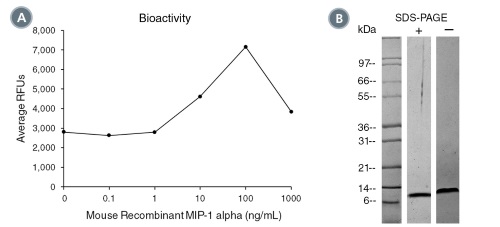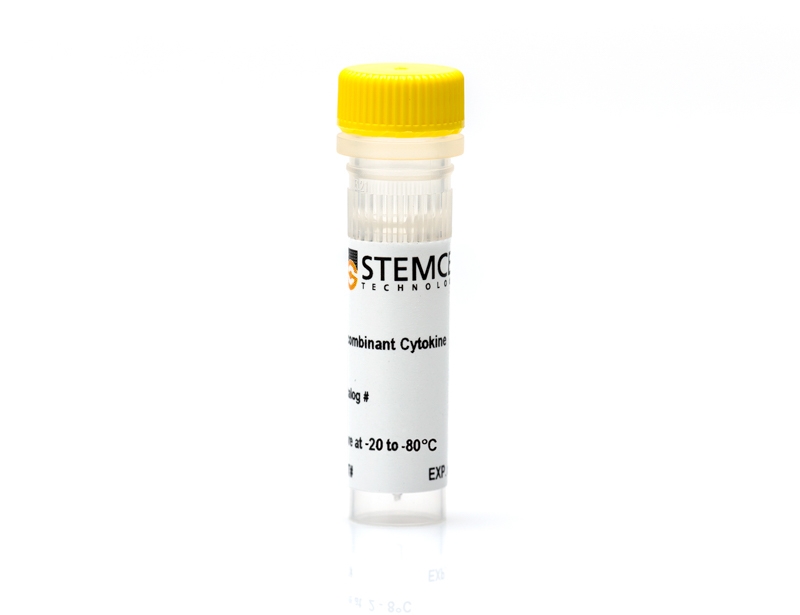Mouse Recombinant MIP-1 alpha (CCL3)
Macrophage inflammatory protein-1 alpha
概要
Macrophage inflammatory protein-1 alpha (MIP-1 alpha), also known as CCL3, is a member of the CC family of chemokines and is most closely related to CCL4 or MIP-1 beta. Mouse MIP-1 alpha signal through CCR1, CCR3, CCR5, and D6 receptors (Menten et al.). MIP-1 alpha exhibits a variety of proinflammatory activities in vitro, including leukocyte chemotaxis, cytokine production, and mast cell activation, and it inhibits the proliferation of hematopoietic stem cells in vitro and in vivo (Cook). MIP-1 alpha plays a critical role in macrophage recruitment into wounds and in tissue repair (DiPietro et al.). It has been demonstrated that blockade of the CCL3/MIP-1 alpha-CCR1 pathway blocks the recruitment of CCR1-expressing CD4+ T cells to the liver, showing a therapeutic potential for treating T cell-mediated liver diseases (Ajuebor et al.).
Subtype
Cytokines
Alternative Names
AI323804, G0S19-1, LD78α, MIP-1a, SCYA3
Cell Type
B Cells, Dendritic Cells, Mesenchymal Stem and Progenitor Cells, Monocytes, NK Cells, Other, T Cells, T Cells, CD4+, T Cells, CD8+
Species
Mouse
Area of Interest
Immunology, Stem Cell Biology
Molecular Weight
7.9 kDa
Purity
≥ 95%
技术资料
| Document Type | 产品名称 | Catalog # | Lot # | 语言 |
|---|---|---|---|---|
| Product Information Sheet | Mouse Recombinant MIP-1 alpha (CCL3) | 78089, 78089.1 | All | English |
| Safety Data Sheet | Mouse Recombinant MIP-1 alpha (CCL3) | 78089, 78089.1 | All | English |
数据及文献
Data

(A) The biological activity of Mouse Recombinant MIP-1 alpha (CCL3) was tested by its ability to induce chemotaxis of THP-1 cells. Cell migration was measured after 1 hour using a fluorometric assay method. Increase in migration over basal level was seen starting at 10 ng/mL. (B) 1 μg of Mouse Recombinant MIP-1 alpha (CCL3) was resolved with SDS-PAGE under reducing (+) and non-reducing (-) conditions and visualized by Coomassie Blue staining. Mouse Recombinant MIP-1 alpha (CCL3) has a predicted molecular mass of 7.9 kDa.



